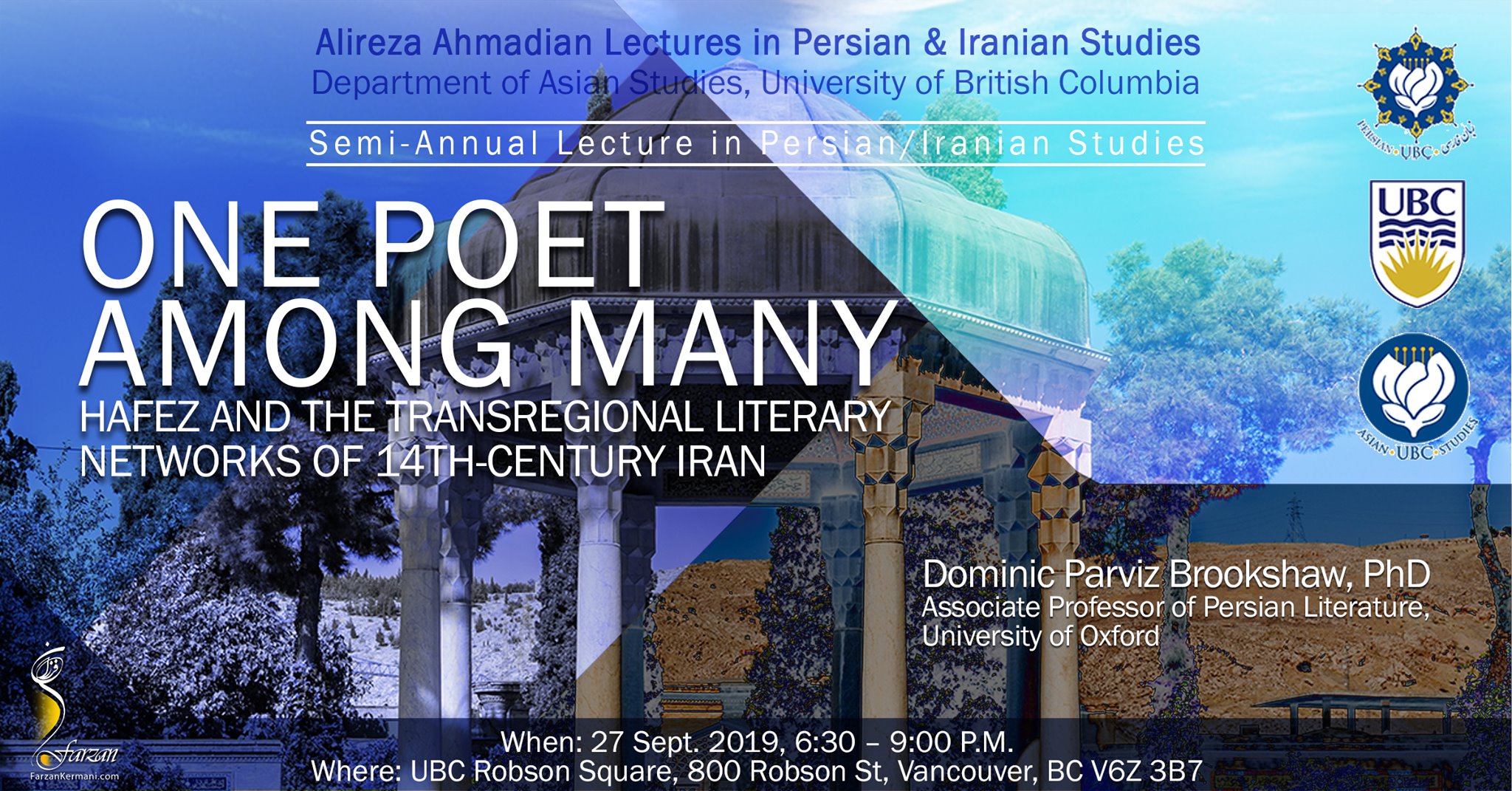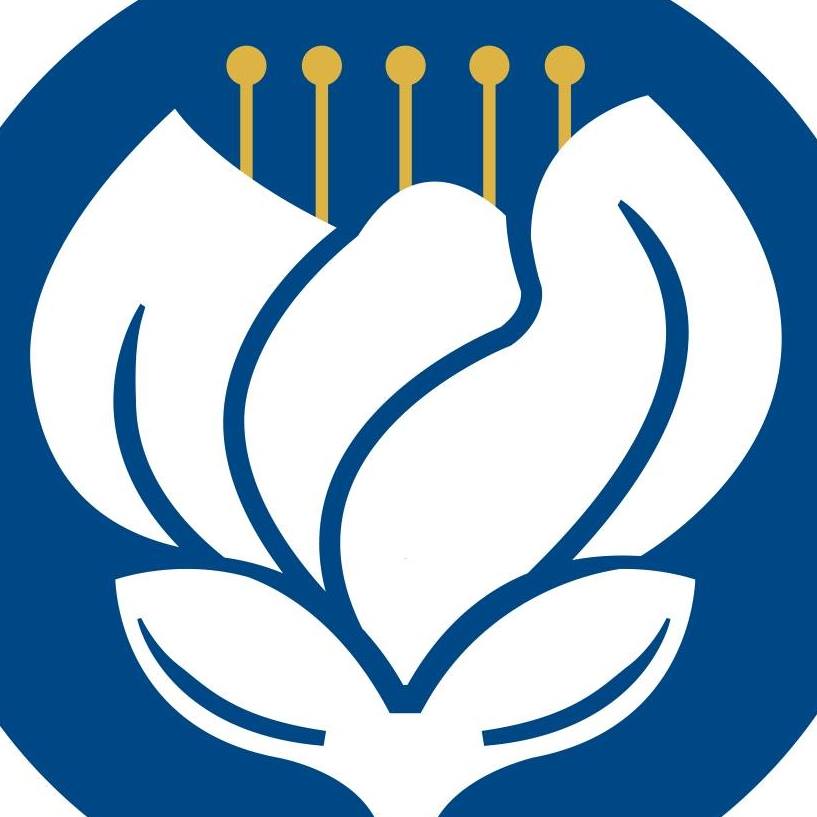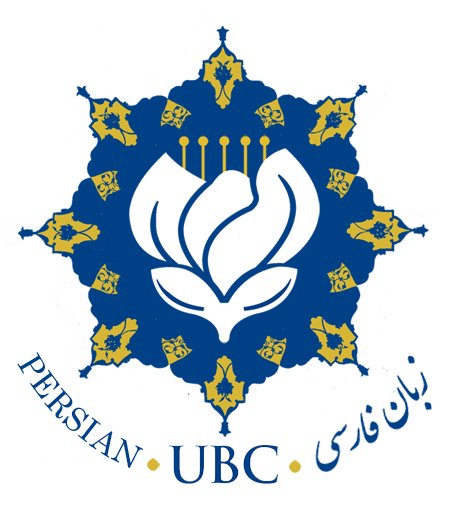Event Category: Meetings
- Overview
حافظ در ذهن و زبان بسیاری از ایرانیان و فارسی زبانان جایگاه ویژه ای دارد، چندان که گاه او را ترجمه ناپذیر و قیاس ناپذیر با دیگر شعرا، چه فارسی زبان و چه غیر فارسی زبان می دانند. دکتر پرویز بروکشا، دانشیار ادبیات فارسی در دانشگاه آکسفورد در این سخنرانی می کوشد دیدگاه تازه ای درباره ی حافظ به ما عرضه کند، دیدگاهی که بر مبنای آن، حافظ را نباید به صورت شاعری منفرد و جدا از حلقه ی شعرای هم عصرش، بلکه در دل چنان مناسبات ادبی و شاعرانه ای و با توجه به روابط ادبی و سیاسی او با شعرای معاصرش، چه در شیراز و چه حتی دورتر، در تبریز و بغداد، مطالعه کرد و شناخت.
—This lecture will argue that Hafez (d. 1390) worked within a competitive literary environment, at once both local and transregional, that required him to reconstruct and reassert continually the image of himself as the undisputed master poet, not only of fourteenth-century Shiraz, but of post-Mongol Iran as a whole. We will begin by discussing responses to Hafez’s short amorous poems (ghazals) penned by the poet’s contemporaries living in Shiraz. These local rivals who were active at the same court and who vied for the favours of the same royal patrons, imitated their more famous colleague so exactly (and, in turn, were imitated by him with such delicacy), that their poems have often been misattributed to him. These misattributions, and misreadings of the directionality of such poetic imitations, have contributed to an inflated perception of the importance of Hafez in the literary circles of post-Mongol Shiraz. Looking beyond Shiraz, we will examine instances of poetic responses to Hafez’s poems authored by poets in two major centres of Persian literary production in this period: Tabriz and Baghdad. Analysis of such response poems (sing. javab) will demonstrate that Hafez’s lyrics travelled far beyond the immediate context of their composition in Fars, and that leading players in the overlapping transregional literary networks in which Hafez’s fame loomed large, sought to question the poet’s position as the foremost lyricist of their day. Kamal and Salman, who were active at some considerable distance from Hafez’s hometown, asserted honorary Shirazi status for themselves by virtue of their self-proclaimed eloquence. When challenging Hafez’s poetic authority, these poets in Tabriz and Baghdad presented themselves as rightful heirs to the literary legacy of Sa‘di of Shiraz, the towering figure of the previous century.
—
Dominic Parviz Brookshaw is Associate Professor of Persian Literature at the University of Oxford, and Senior Research Fellow in Persian at Wadham College, Oxford. From 2011-2013 he was Assistant Professor of Persian Literature and Comparative Literature at Stanford University. Professor Brookshaw currently serves on the Editorial Board of Middle Eastern Literatures and, for a decade (2004-2014), he served as Assistant Editor for Iranian Studies. He is a former member of both the Board of the International Society for Iranian Studies, and the Governing Council of the British Institute of Persian Studies. Professor Brookshaw has published widely on medieval and modern Persian poetry. His monograph, Hafiz and His Contemporaries: Poetry, Performance, and Patronage in Fourteenth-century Iran was published in February 2019 by Bloomsbury. - Photos
- Map
No Records Found
Sorry, no records were found. Please adjust your search criteria and try again.
Google Map Not Loaded
Sorry, unable to load Google Maps API.
- Reviews
- Place
- Organizer
-
Lectures in Persian/Iranian studies, held by the Asian Centre at UBC. [Name temporarily changed in 2019-2020 to commemorate the late Alireza Ahmadian’s (1981-2019) contributions to the idea and coordination of Read more...
-
An ongoing initiative to establish the Persian and Iranian studies program in the Department of Asian Studies at the University of British Columbia. UBC Department of Asian Studies is inspired Read more...
-



